Winemaking
Ridge Vineyards is proud to have a team of skilled winemakers who bring their passion and expertise to every wine we produce. With decades of experience and a deep love for the art of winemaking, our winemakers are dedicated to crafting exceptional wines for you to enjoy.
Our Winemaking Team
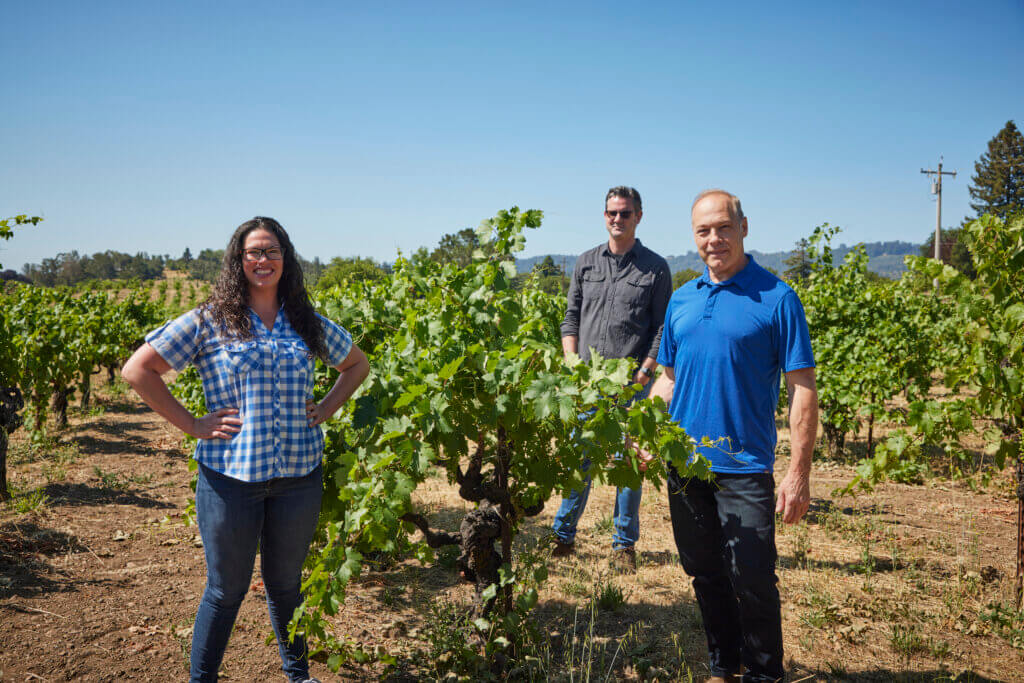
John Olney joined Ridge in 1996 and worked in both the Monte Bello and Lytton Springs wineries before becoming Head Winemaker & COO in 2021. Shauna Rosenblum brings a wealth of experience to Ridge in crafting single-vineyard zinfandel wines and joins Michael Bairdsmith, who started at the Lytton Springs location in 2014.
Our Pre-Industrial Philosophy
At Ridge, we call our approach to winemaking “pre-industrial.” We believe that for anyone attempting to make fine wine, modern additives and industrial processing limit true quality. Our philosophy comes from the techniques used in the finest 19th-century California wineries and Bordeaux chateaux. In 1933, after thirteen years of Prohibition, very few winemakers who were trained in pre-Prohibition traditional techniques were young enough to return to their positions. Universities stepped in to fill the need for winemaker expertise, and began – year by year – to reinvent winemaking as an industrial process. We believe that these increasingly industrial methods interfere with the distinctive qualities of a fine vineyard and mask – rather than improve – the character of a wine.
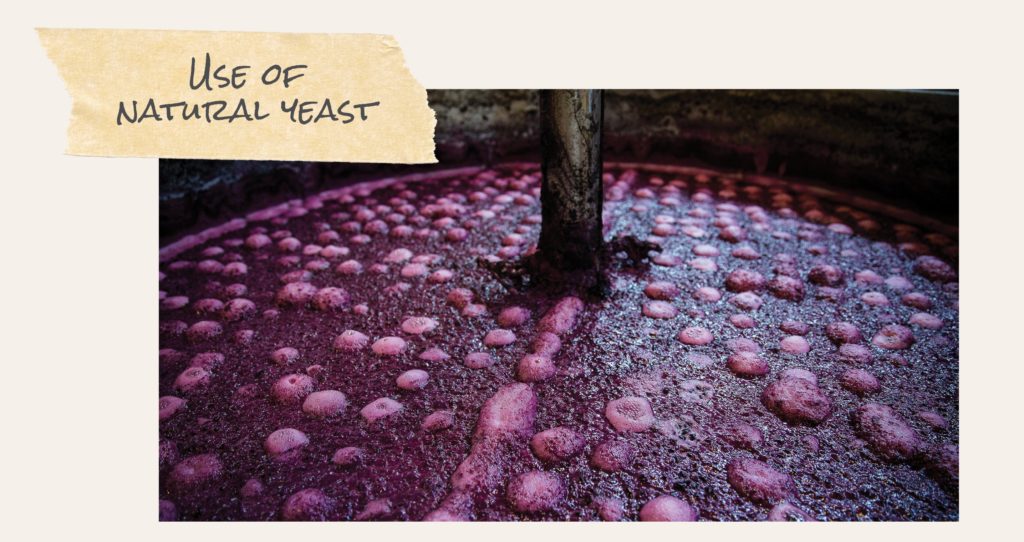
We ferment our wines using the native yeasts from the vineyard rather than cultured yeast strains.
Relying on natural yeasts gives meaning to what we’re doing. We’re not in the driver’s seat – we assist the natural process by choosing the vineyards, by watching over the wines, and by applying our experience to how we handle the wines. But the wines, in a sense, make themselves. Our side-by-side comparisons show that fermentations with natural yeast almost always result in a more complex and interesting wine.
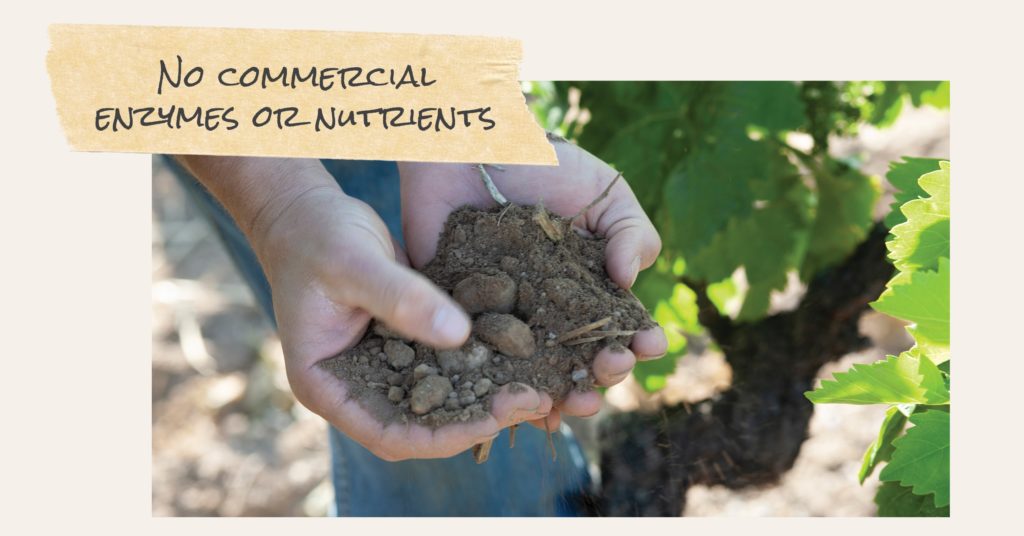
We extract color, flavor, and tannins from the grapes without the use of commercial enzymes or nutrients.
While these commercial products provide the nitrogen that yeasts need for a healthy fermentation, we prefer to rely on sound vineyard practices to create grape musts that provide the yeasts with their ideal nutrient levels. We encourage healthy nitrogen levels in our soils through a variety of methods including annual cover cropping, the addition of organic compost and fertilizers when necessary, and close monitoring of plant tissue nitrogen levels throughout the growing season.
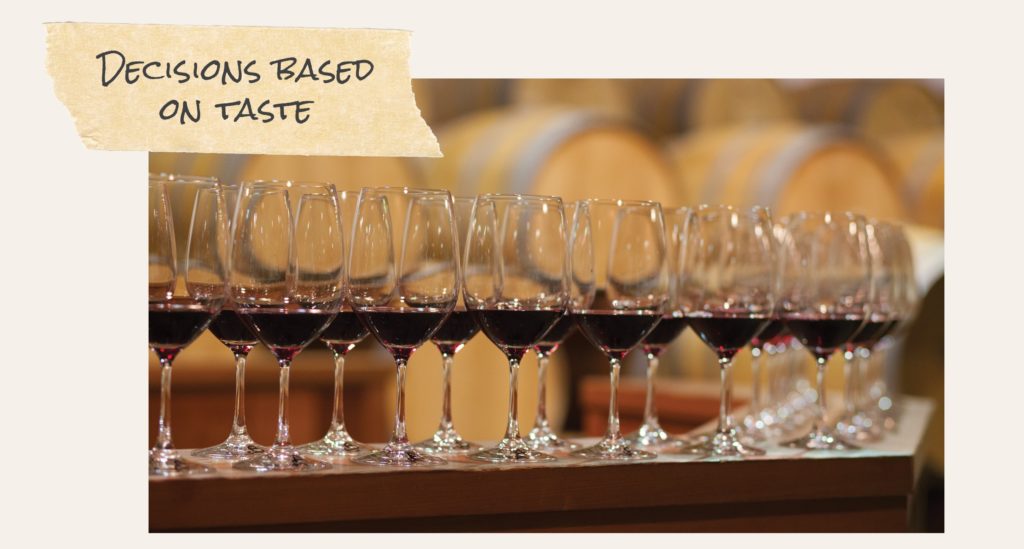
Once asked what the single most important device was for making fine wine, Paul Draper responded, “the wine glass.”
Whether it be the sampling of the grapes before deciding to pick, determining how long to continue pump-overs for tannin extraction during fermentation, or choosing which blocks to include in the final blend of the wine, we make our major winemaking decisions based on blind tasting rather than a pre-determined recipe.
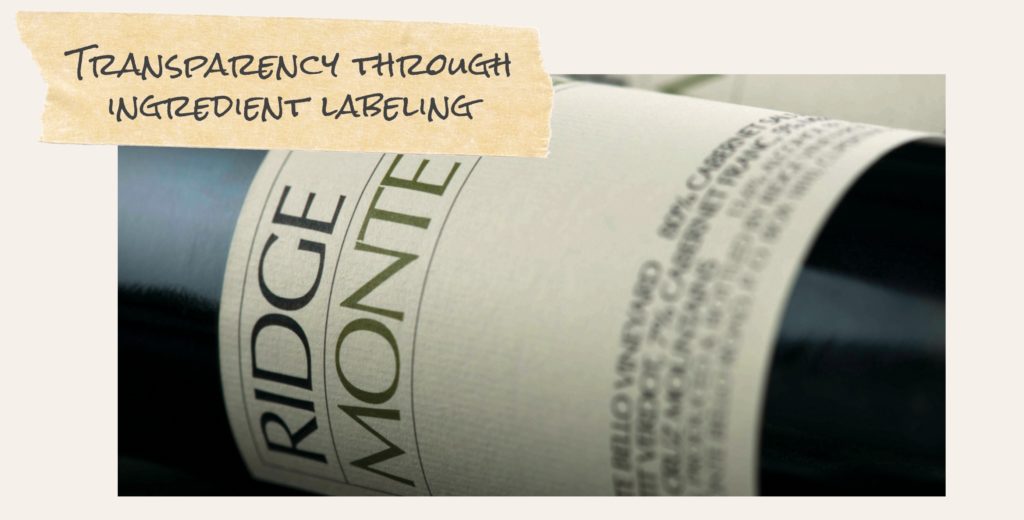
We voluntarily provide a list of actions and ingredients on all our labels to show how little intervention is necessary to produce a fine, terroir-driven wine from distinctive fruit.
In addition to organic or sustainably grown grapes, their natural yeasts and the malolactic bacteria, we list all additives. The few additives we use have been in use for well over a hundred years. We hope to encourage others making fine wine to entrust their customers with their list of ingredients.
Wait!
In order to qualify for user related discounts, you must log in before proceeding with checkout. Click the button below to log in and receive these benefits, or close the window to continue.
Log In